 Petzlover
Petzlover American Polydactyl is originated from United States but Siamese is originated from Thailand. Both American Polydactyl and Siamese are having almost same weight. American Polydactyl may live 4 years less than Siamese. Both American Polydactyl and Siamese has same litter size. Both American Polydactyl and Siamese requires Low Maintenance.
American Polydactyl is originated from United States but Siamese is originated from Thailand. Both American Polydactyl and Siamese are having almost same weight. American Polydactyl may live 4 years less than Siamese. Both American Polydactyl and Siamese has same litter size. Both American Polydactyl and Siamese requires Low Maintenance.
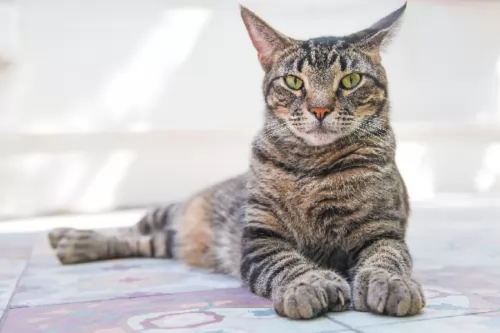 It is believed that this unusual cat came to the United States on ships – kept by sailors who thought of them as a good luck charm and to keep the mice population under control.
It is believed that this unusual cat came to the United States on ships – kept by sailors who thought of them as a good luck charm and to keep the mice population under control.
These unusual cats became popular in the 1800s as ship cats but the cats soon began to be seen in port cities on the Eastern coast of the United States as well as Canada, and their numbers began to increase.
It is also believed these interesting cats were brought specifically to the Boston area.
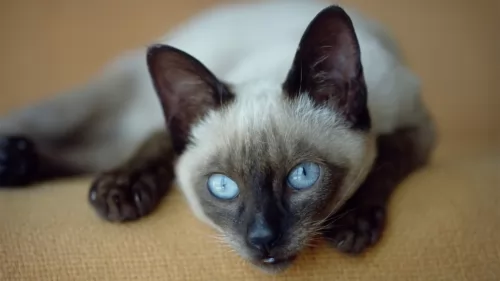 The Siamese cat is one of the most recognized cat breeds there are. The cat hails from Thailand and is the foundation stock for a number of other breeds.
The Siamese cat is one of the most recognized cat breeds there are. The cat hails from Thailand and is the foundation stock for a number of other breeds.
It comes in two distinct variations - traditional and the more modern Siamese.
In the United States, most of the top cat registries only consider the 4 original fur colors as Siamese – chocolate point, seal point, blue point, and lilac point.
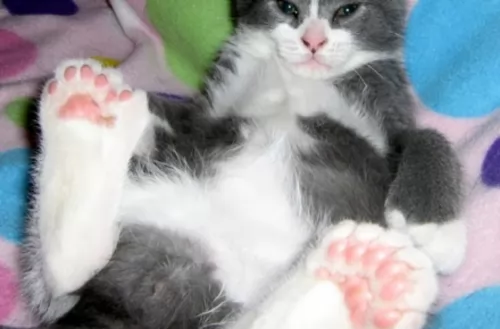 The Polydactyl cat is unusual in that the cat has been born with something odd about it. It has more than the regular number of toes on just one or more of its paws.
The Polydactyl cat is unusual in that the cat has been born with something odd about it. It has more than the regular number of toes on just one or more of its paws.
Normal cats have a sum of 18 toes, with 5 on the front and 4 on the back but with Polydactyl cats you may find as many as 9 digits on their front and back paws.
American Polydactyl cats are medium to large in size with strong, muscular bodies. The cat can weigh up to 6kg. The head is broad, the ears wide-set and pointed and the coat can be any color, pattern and length.
These cats are easy-going, relaxed, and social. They’re hardy too and they’re able to enjoy being outdoors and indoors.
They’re affectionate with their human family and are also playful and energetic. It is prepared to be friendly with dogs and children too, but it is also able to act independently and get on with things. The Polydactyl cat is distinctive but also a very popular cat breed.
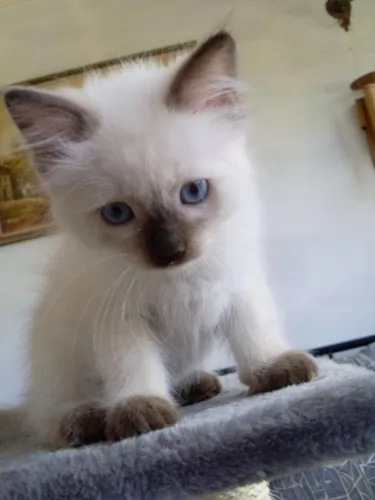 The Siamese cat is a medium-sized cat. Today’s Siamese cat is recognized by the triangular-shaped head, the slender, muscular body, the blue almond-shaped eyes, the largish ears, and the cream point colored coat.
The Siamese cat is a medium-sized cat. Today’s Siamese cat is recognized by the triangular-shaped head, the slender, muscular body, the blue almond-shaped eyes, the largish ears, and the cream point colored coat.
The face of the Siamese also has a mask of the same point color. Weighing at between 3 – 5kg, the Siamese has a long neck and slender tail.
All Siamese kittens are cream or white at birth, but they develop visible points in the first few months of life. The coat is short and glossy. By the time the kitten is 4 weeks old, the points are clearly distinguishable.
Siamese are affectionate, curious, playful, intelligent cats and are known for their vocal, social natures.
With the Siamese cat, you may see him bonding strongly with one particular person in the family.
They’re active cats and are also one of these cat breeds that are described as being more dog-like. Some of them become so attached to their human owners that they can become depressed or suffer from separation anxiety when left alone for long periods of time.
Because of the cat’s intelligence, he can be easily trained to respond to simple commands.
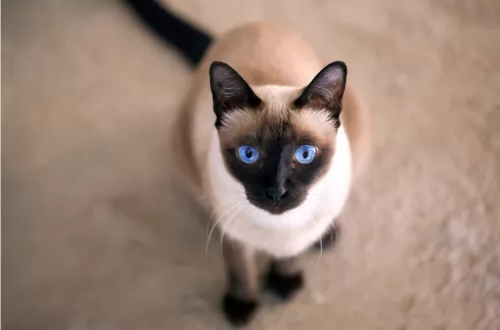 The Siamese cat is such a popular breed and with good reason. It makes a splendid companion for single people, families, couples, and older people. It gets on well with children and other pets too.
The Siamese cat is such a popular breed and with good reason. It makes a splendid companion for single people, families, couples, and older people. It gets on well with children and other pets too.
However, it is an energetic cat and won’t relish lying around day after day. He will want you to play with him and exercise him too, providing him with a stimulating environment.
These are such affectionate cats too, that it will be too sad if he lands up in a home where people don’t provide him with love and care. In exchange for that, you couldn’t ask for a better companion and friend.
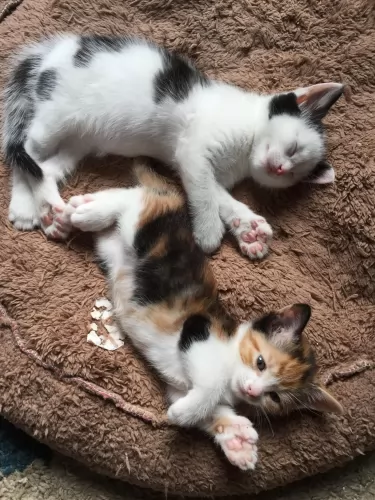 With good care, these cats can live to be between 14 and 16 years of age. You need to be diligent with keeping this cat’s nails trimmed because depending on the placement of the toes, the nails could become a nuisance, growing in the wrong direction and cutting into he cat’s flesh.
With good care, these cats can live to be between 14 and 16 years of age. You need to be diligent with keeping this cat’s nails trimmed because depending on the placement of the toes, the nails could become a nuisance, growing in the wrong direction and cutting into he cat’s flesh.
Keep the nails trimmed as necessary. To avoid possible injury to your pet, your veterinarian can safely trim your cat’s claws.
Always pay attention to your cat's behavior as well as taking note of your cat when you groom him as both are good ways to discover whether anything is amiss with your polydactyl cat.
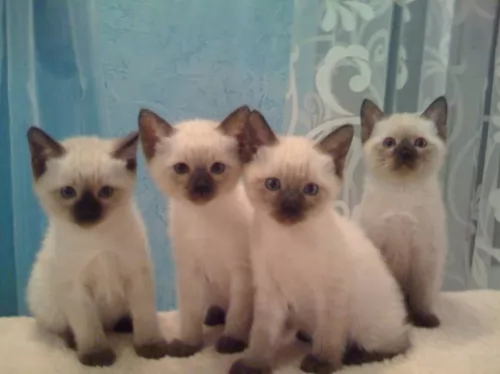 With good care, your Siamese cat can live to be between 12 and 20 years of age. It is a slim cat, so you want to keep him that way as becoming overweight can put a whole lot of pressure on the cat’s joints and bring on other health issues.
With good care, your Siamese cat can live to be between 12 and 20 years of age. It is a slim cat, so you want to keep him that way as becoming overweight can put a whole lot of pressure on the cat’s joints and bring on other health issues.
There are always some common cat diseases to watch out for and one of these is mammary tumors. They also battle with gastrointestinal problems and lung infections.
They are actually prone to respiratory problems, but this is more seen in younger cats. Upper respiratory infection with the Siamese cat will usually last about a week or it can go on longer.
Your cat with have a nasal or eye discharge, will be drooling as well as have ulcers around the nose and mouth with aches and pains aa well as lethargy.
Make sure that your Siamese cat is up to date with his vaccinations.
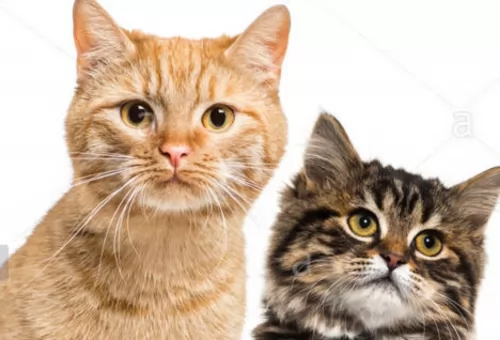 Keep an eye on your cat’s paws as their extra toes can make it that they are at a higher risk of hooking on a carpet or some other material, but this can be managed with regular nail trimming.
Keep an eye on your cat’s paws as their extra toes can make it that they are at a higher risk of hooking on a carpet or some other material, but this can be managed with regular nail trimming.
Provide your cat with all the things he needs to make his life pleasant while in your care. He’ll need feeding and drinking bowls, a nice warm, dry bed, a litter box, stimulating toys, and things such as a scratching post and cat climbing tree.
Cats are meat-eaters, and they need protein from meat for health. Some cooked chicken and beef can be a real treat for your pet. Grains and carbohydrates should only play a very small role in your pet’s diet. Too many grains can lead to malnutrition and obesity as well as problems with your cat's organs.
Always take into account your cat’s age because different life stages mean different energy levels and therefore different nutritional needs.
Take your sick cat to the vet when you see he is not his usual self. Make sure you keep up to date with all his vaccines and anti-parasite treatments.
One of the most important health decisions you’ll make for your Polydactyl cat is to have your pet spayed or neutered. The procedure is common and performed in your vet’s office every day.
It offers lifelong health benefits. It improves your pet’s behavior and keeps them close to home too. Spaying a female cat will prevent uterine infections and breast cancer, and for males, it can prevent testicular cancer.
Best of all, it helps to prevent yet more kittens into a world overrun with stray cats and rescue centers jam-packed with unwanted kittens and cats.
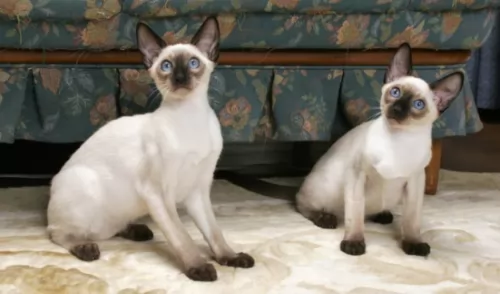 Good diet is one of the most important ways to care for your Siamese cat. Your cat is a carnivore and you therefore need to ensure he gets an appropriate diet otherwise you’re going to be spending more time at the vet with a sick cat than you’d like to.
Good diet is one of the most important ways to care for your Siamese cat. Your cat is a carnivore and you therefore need to ensure he gets an appropriate diet otherwise you’re going to be spending more time at the vet with a sick cat than you’d like to.
Always check with your vet if you have any uncertainties about feeding your Siamese kitten. Kittens will eat different food to an adult, and even in adulthood, there is commercial cat food manufactured for adult cats, pregnant felines, lactating cats, energetic cats, senior cats and sick cats.
Where possible, you will need to try and provide your cat with some fresh, raw meat too.
Never leave your cat without a bowl of fresh, cool water night and day.
The coat of the Siamese cat is thick, soft, and silky and he will require a brush every week to keep it like that.
They are agile, athletic cats, loving to jump up onto perches so it will be a good idea to provide a climbing tree or some other equipment where the cat can leap up onto.
Provide your cat with a litter box and make sure that the cat’s feces are removed every single day.